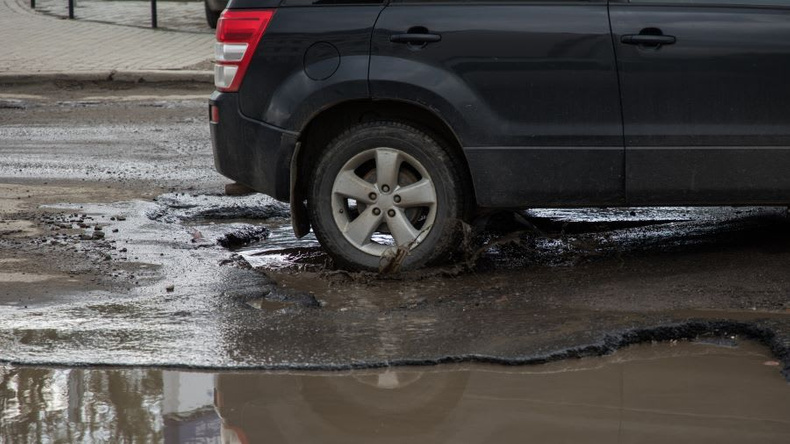Pothole reports hit five year high

The UK’s pothole scourge reached a new peak in 2023, with reports made to local councils hitting a five year high.
That’s according to new data - revealed to coincide with National Pothole Day 2024 - compiled by campaign group Round Our Way following a Freedom of Information request.
Almost 630,000 dangerous road craters were reported to councils in England, Scotland and Wales between January and November last year.
Roger Harding, director of Round Our Way, said: “Potholes are the bane of many of our lives and put drivers, cyclists and even pedestrians at risk of serious injury. The weather extremes that climate change brings are sadly creating many more of them at a time when cuts mean repairs are already not keeping up."
In last year’s Spring Budget, Chancellor Jeremy Hunt promised an extra £200m to local authorities to help repair fractured roads.
That pledge, however, hasn’t yet translated into a better driving experience for UK motorists.
Commenting on the Round our Way info, a Department for Transport spokesperson said: "We're taking decisive action to fix potholes and resurface roads by investing an extra £8.3bn of redirected HS2 funding, the biggest ever funding increase for local road improvements and enough to resurface over 5,000 miles of roads across the country."
Potholes don’t just rattle the teeth of road users, they can also lead to serious vehicle damage - with motorists suffering flat tyres, buckled alloy wheels, damaged track rod ends, broken coil springs, or even bent suspension wishbones.
The AA has also revealed it received 632,000 callouts to vehicles damaged by potholes in 2023 - an increase of 16 per cent compared with 2022.
Back in October last year, Select Car Leasing examined data held by ‘Fill That Hole’, a campaign group run by the charity Cycling UK.
It compiles thousands of pothole complaints from both cyclists and motorists, passes the details on to the relevant local authorities, and then monitors the situation to see if the road void actually gets fixed.
At that point in time, pothole reports to Fill That Hole were up 31 per cent - almost a third - in 2023 compared to the same point in time last year (4,852 reports as of October 2023 compared with 3,693 reports by October 2022).
With snow and ice on the way this week, the UK’s battered highways could be left in an even worse shape - with cycles of freeze-thaw exacerbating the fracturing of road surfaces.
There’s another vital piece of advice UK motorists should heed in the coming days - and that’s NOT to swerve out of your lane, and potentially into on-rushing traffic, to avoid hitting a pothole.
Select Car Leasing’s Graham Conway comments: “There’s nothing quite as terrifying as seeing a car on the wrong side of the road and hurtling towards you. But that’s becoming an all-too-common occurrence on UK roads, as more and more motorists veer out of their lane to avoid hitting a pothole.
"The urge to swerve can be instinctive, particularly if you’ve seen a pothole at the very last minute, and it’s only natural to want to to spare yourself the expense of a repair bill. But ending up on the wrong side of the road doesn’t just put yourself at risk, it endangers ALL road users. If you see a pothole, slow down, do NOT swerve blindly into extreme danger."
How else can motorists protect themselves from pothole damage?
Correctly inflated tyres can make a big difference here.
Select’s Mr Conway adds: “Properly inflated tyres - being not too soft, and not too hard - is one of the best ways to limit pothole damage. If the pressure in your tyres is too high, the impact of a pothole isn’t transferred properly through the wheel, and it’s more likely to damage your vehicle’s suspension. In winter, we should all be keeping a really close eye on our tyre pressures. Consult the recommended PSI in your vehicle’s handbook and check them at least once a week.”
You should also never slam on the brakes as you actually hit a pothole. If you can, roll over it instead.
Mr Conway explains: “When you brake, your car nosedives forwards, compressing the suspension. If your car is already lurching forward as you hit a road crater, there’s little play left in the suspension, meaning it can no longer properly absorb an impact. And that means you could actually increase the amount of pothole damage that occurs, potentially leaving you with a buckled alloy wheel.”
